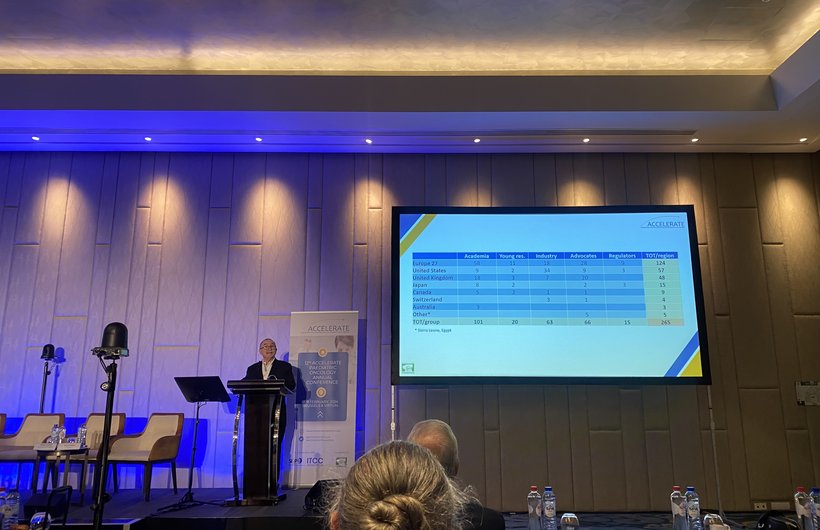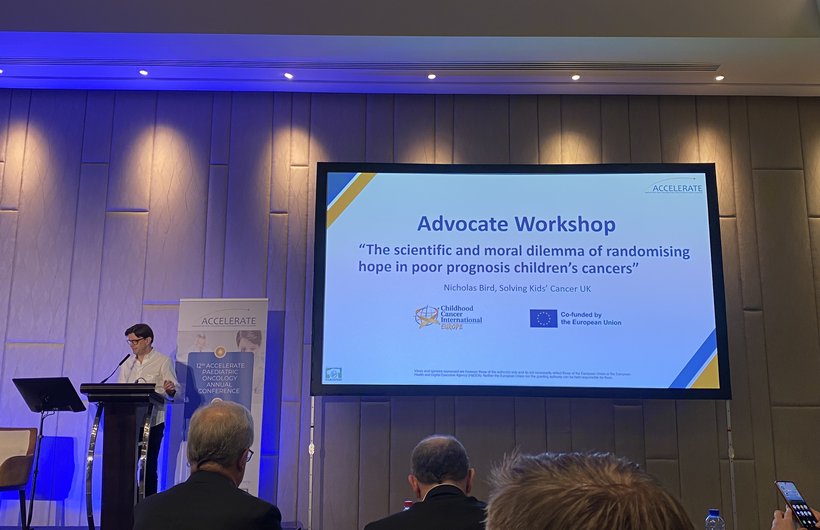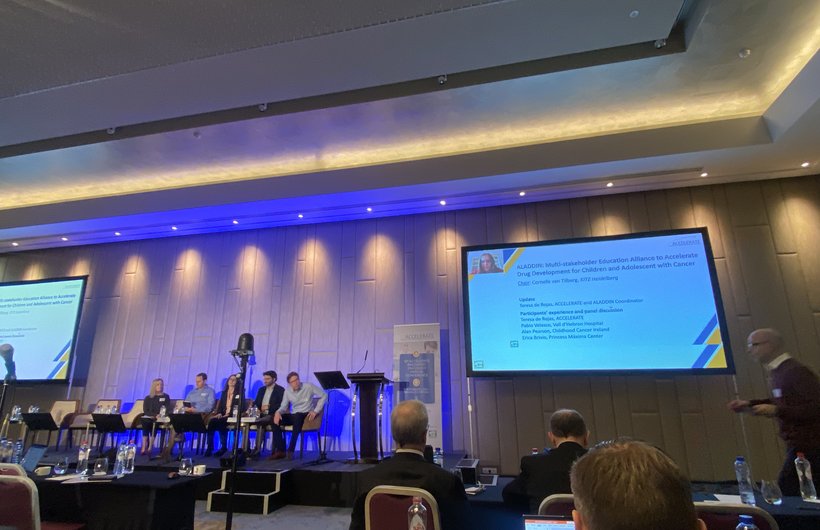ACCELERATE 2024: A round-up
Last week our Research Team headed to Brussels for the annual ACCELERATE conference. ACCELERATE is a multi-stakeholder platform working to improve drug development for children with cancer on an international scale. The platform brings together groups from academia, healthcare, patient communities, industry and regulation to tackle the challenges in the drug development landscape with innovative thinking and partnerships.
Solving Kids’ Cancer UK has been involved in the work of ACCELERATE for many years as a patient partner, with our Head of Research Leona Knox sitting on their Steering Committee, as well as involvement in several of their activities including the annual conference.
The beauty of the forum is that it encompasses perspectives from all parts of the research community, which is crucial to make progress in this landscape against the nuanced challenges that exist. This year’s meeting was no different, with a plethora of thought-provoking sessions and discussions. The conference was opened with a Keynote talk by Professor Franco Locatelli, Head of the Department of Paediatric Haematology and Oncology at IRCCS Bambino Gesù Children’s Hospital in Rome, who shared the exciting work of his team on developing GD2 CAR T-cells for high-risk neuroblastoma. This promising new approach that has significant potential as a treatment strategy set the tone for the meeting perfectly – looking to a future where we can are doing better for children that desperately need it.
Other highlights included a session focused on the achievements of ACCELERATE to date, chaired by our Head of Research, Leona. During this, we heard about the successes of some of ACCELERATE’s activities over the past 12 months, including the ALADDIN educational programme, where Solving Kids’ Cancer UK plays a leading role as patient partner. Our Chair of Trustees, Nick Bird, presented on the progress of the ACCELERATE advocacy workshops that are focusing on the moral dilemmas of running randomised trials in children’s cancer. This important parent perspective on a very difficult question left a lot of food-for-thought and was truly valued by all groups in attendance.
As in every activity run by ACCELERATE, discussion was a top priority, particularly within the breakout sessions that shaped the agenda for Day 2. Participants were divided into groups to discuss three pressing issues facing drug development for children’s cancers:
- Improving access to investigational drugs for clinical trials
- Optimizing decentralized elements in clinical trials
- Developing proper prioritisation of new products and apply it in practice
Facing these difficult problems in discussion as a group led not only to creative solutions, but also tangible and actionable steps that could get us there. This is a true strength of the ACCELERATE meetings – that they are founded on taking action and making a real impact.
Our team came away with a refreshed inspiration in our own work to improve the development of better treatments for children with cancer. We are very grateful to the whole ACCELERATE team for once again hosting this valuable meeting, and for continually involving us in their important work.







